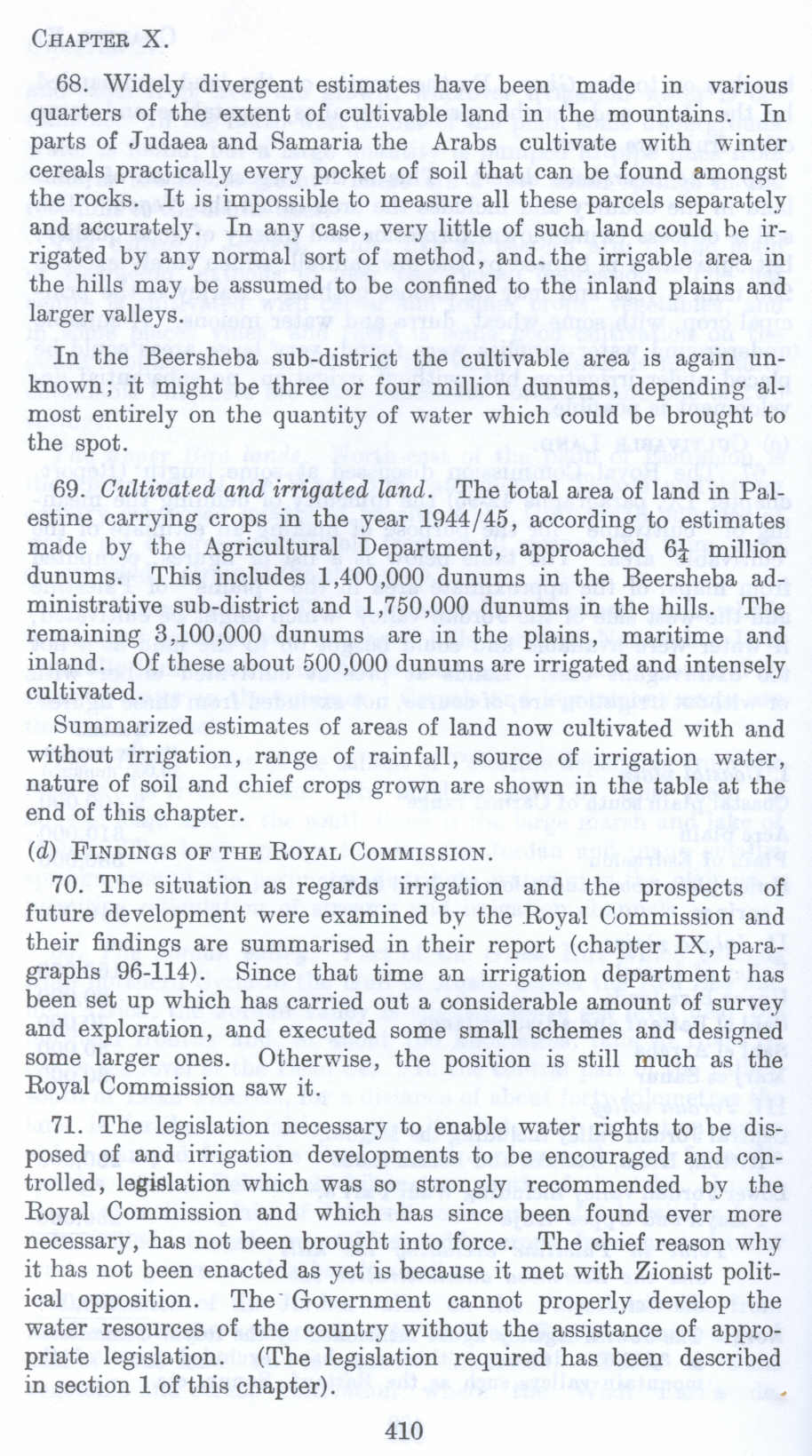| Prev | Next |  |
| Prev | Next |
| PalestineRemembered | About Us | Oral History | العربية | |
| Pictures | Zionist FAQs | Haavara | Maps | |
| Search |
| Camps |
| Districts |
| Acre |
| Baysan |
| Beersheba |
| Bethlehem |
| Gaza |
| Haifa |
| Hebron |
| Jaffa |
| Jericho |
| Jerusalem |
| Jinin |
| Nablus |
| Nazareth |
| Ramallah |
| al-Ramla |
| Safad |
| Tiberias |
| Tulkarm |
| Donate |
| Contact |
| Profile |
| Videos |
British Mandate: A Survey of Palestine: Volume I - Page 410 |
Disclaimer
The above documents, article, interviews, movies, podcasts, or stories reflects solely the research and opinions of its authors. PalestineRemembered.com makes its best effort to validate its contents.


Post Your Comment
*It should be NOTED that your email address won't be shared, and all communications between members will be routed via the website's mail server.
68. Widely divergent estimates have been made in various quarters of the extent of cultivable land in the mountains. In parts of Judaea and Samaria the Arabs cultivate with winter cereals practically every pocket of soil that can be found amongst the rocks. It is impossible to measure all these parcels separately and accurately. In any case, very little of such land could he irrigated by any normal sort of method, and- the irrigable area in the hills may be assumed to be confined to the inland plains and larger valleys.
In the Beersheba sub-district the cultivable area is again unknown; it might be three or four million dunums, depending almost entirely on the quantity of water which could be brought to the spot.
69. Cultivated and irrigated land. The total area of land in Palestine carrying crops in the year 1944/45, according to estimates made by the Agricultural Department, approached 6! million dunums. This includes 1,400,000 dunums in the Beersheba administrative sub-district and 1,750,000 dunums in the hills. The remaining 3,100,000 dunums are in the plains, maritime and inland. Of these about 500,000 dunums are irrigated and intensely cultivated.
Summarized estimates of areas of land now cultivated with and without irrigation, range of rainfall, source of irrigation water, nature of soil and chief crops grown are shown in the table at the end of this chapter.
(d) FINDINGS OF THE Royal COMMISSION.
70. The situation as regards irrigation and the prospects of future development were examined by the Royal Commission and their findings are summarised in their report (chapter IX, paragraphs 96-114). Since that time an irrigation department has been set up which has carried out a considerable amount of survey and exploration, and executed some small schemes and designed some larger ones. Otherwise, the position is still much as the Royal Commission saw it.
71. The legislation necessary to enable water rights to be disposed of and irrigation developments to be encouraged and controlled, legislation which was so strongly recommended by the Royal Commission and which has since been found ever more necessary, has not been brought into force. The chief reason why it has not been enacted as yet is because it met with Zionist political opposition. The• Government cannot properly develop the water resources of the country without the assistance of appropriate legislation. (The legislation required has been described in section 1 of this chapter).
Page 410